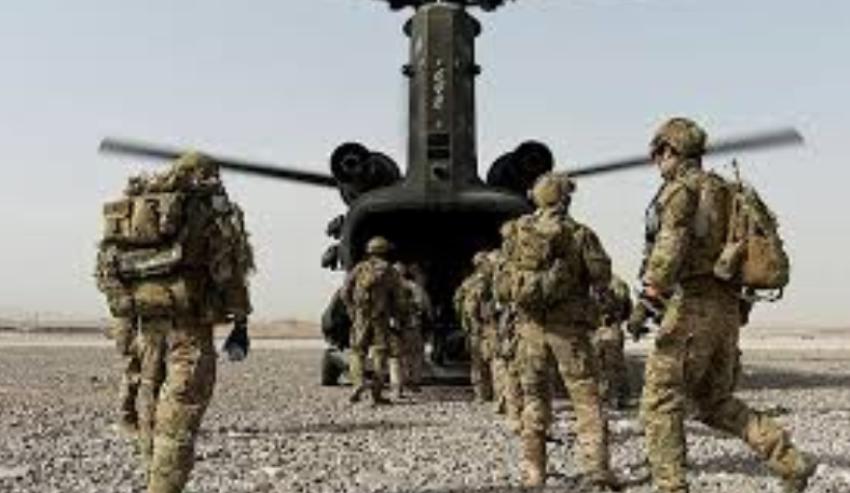There has been an increased focus on Australian defence industry capability recently, with the inclusion of key projects that will greatly support Australian businesses and defence industry. This includes the likes of the Future Submarine Program (SEA 1000), Air Warfare Destroyers (AWDs), Future Frigates and much more. The Future Submarine Program, for example, will be the largest Defence procurement program in Australia’s history and represents an investment of $50 billion in Australia’s security. It will also be a capability design, construction and sustainment challenge of unprecedented scale and complexity, spanning decades and supporting generations to come.
To continue reading the rest of this article, please log in.
Create free account to get unlimited news articles and more!
The current line of Defence projects means Australia will now be moving into 12th place globally for defence spending – this statistic alone demonstrates the level of commitment nationwide.
This focus on defence industry means a plethora of opportunities for Australian businesses and potential suppliers, as Defence represents billions of dollars of investment in local industry. The longevity of these projects present unique opportunities for Australian businesses to secure long-term contracts as a part of very large supply chains. Defence has very stringent requirements in place for becoming a part of supply chains, whether it be direct to a prime or a tier two or three organisation. A quality management system compliant to ISO 9001 or AS 9100 (aerospace quality management system) is usually a mandatory requirement for doing business with any major aerospace manufacturer or supplier.
ISO 9001 and AS 9100 are international standards that allow organisations to demonstrate best practice in their respective industry and a holistic approach to a consistent level of quality. Organisations use quality management systems to outwardly demonstrate their ability to consistently provide products and services that meet customer and regulatory requirements, and also provide vital traceability. Furthermore, it promotes and demonstrates a culture of continual improvement and best practice in the organisation’s respective industry.
So is this just jumping through hoops or is there more to it than that?
It is important to understand that that defence platforms are a combination of resources and technology designed to combat an enemy threat or provide support in a scenario of crisis. If a component hasn’t met stringent specifications that have been quality tested, it can possibly fail to fulfil its intended use.
A great example to put this into context is to imagine the SEA 1000 Future Submarine Program and their predecessors, the Collins Class submarines. The new submarines will consist of over 1 million components, without taking into account the design process. These components will come from potentially hundreds of different suppliers, hence the requirement to ensure that their contributions to the FSP conform to all applicable standards and inspections. Standards like ISO 9001 and AS 9100 are paramount to ensuring a consistent approach to the production of goods and services, to the FSP and other Defence projects.
So how does a firm achieve this certification in order enter the defence supply chain?
To become certified to ISO 9001 or AS 9100, a business must first have a set of policies, processes and procedures required for planning and execution (production/development/service) in the core business area of an organisation. This is the quality management system itself. Certification within Australasia is strictly controlled by the Joint Accreditation System – Australia New Zealand (JAS-ANZ), which licenses formally accredited certification bodies (http://www.jas-anz.org/accredited-bodies/search) to certify organisations to the relevant standard only where the auditors used have demonstrated industry experience. Businesses then need to undergo audits by a certification body to ensure compliance with the respective standards.
Raising a company’s level of quality in order to participate in one of the biggest defence programs in Australia’s history.
The process to become ISO 9001 and/or AS 9100 certified can be a lengthy process for any business, but the benefits far outweigh the costs, and many businesses actually implement quality management systems without actually becoming certified. Achieving ISO 9001 and/or AS 9100 says to government and Defence that your company can be associated with a consistent and quality product/service offering. Achieving any certification actually means an investment into the growth and development of your business, your brand and your long-term future. When we talk about Defence, this also represents an investment into the men and women that keep us safe and sound.
JLB is a proud Australian company with over seven decades of defence experience within its consultancy and management team, all the while remaining heavily involved within the defence sphere. JLB regularly assists Australian businesses to become Defence-ready, developing and implementing quality, OHS, environmental, asset management and information security management systems.

 Login
Login







